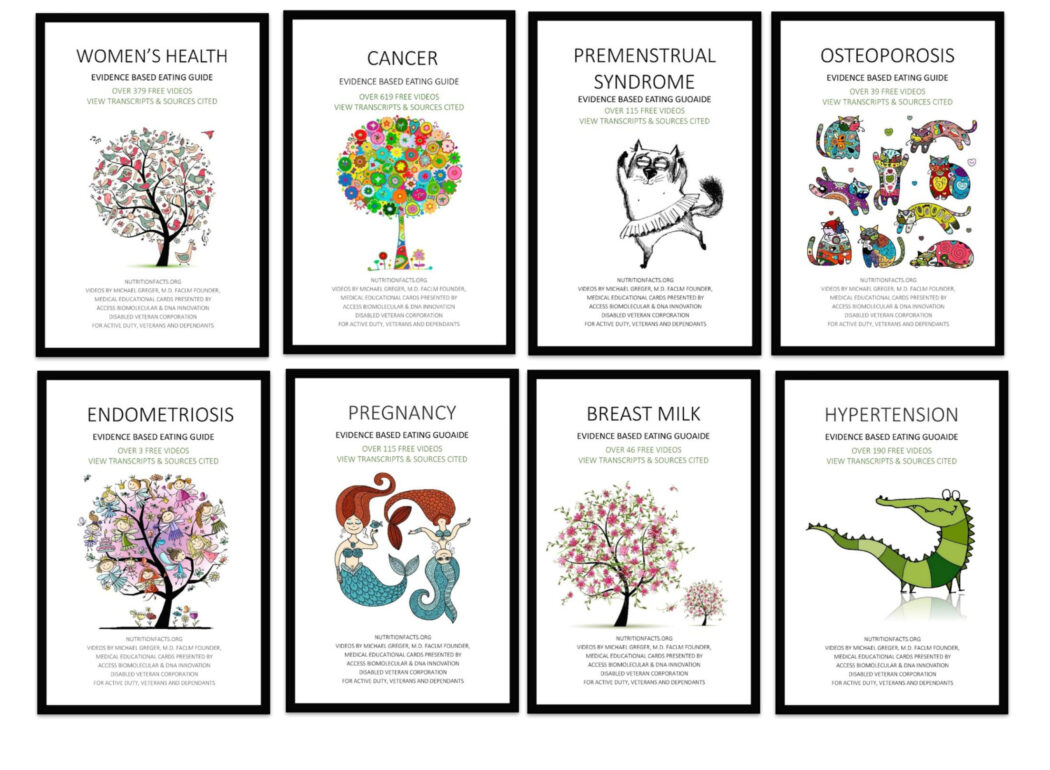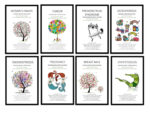Men’s Health
Is it possible dietary choices may affect sperm counts, genital development of boys, sexual function in men, and risk of prostate cancer, among other men’s health issues?
The ongoing global drop in male fertility may be associated with saturated fat intake and lack of sufficient fruits and vegetables. Sex steroid hormones in meat, eggs, and dairy may help explain the link between saturated fat intake and declining sperm counts. Cholesterol may also play a role. We’ve known for decades that men with high cholesterol levels appear to show abnormalities in their spermiograms, decreased sperm concentration, about a third of the normal sperm movement, and half the normal sperm shape, and, in the largest study to date, higher levels of cholesterol in the blood was associated with a significantly lower percentage of normal sperm. Cholesterol was also associated with reductions in semen volume and live sperm count. These results highlight the role of fats in the blood in male fertility. Though a healthier diet may be associated with healthier sperm counts, cholesterol-lowering statin drugs did not seem to help.
Erectile dysfunction (ED), the recurrent or persistent inability to attain or maintain an erection for satisfactory sexual performance, reportedly is present in up to 30 million men in the United States and approximately 100 million men worldwide. The reason may be due to our artery-clogging diet. Erectile dysfunction and our number-one killer, coronary artery disease, may actually be two manifestations of the same disease—inflamed, clogged, and crippled arteries—regardless of which organs are affected.
What if we ate a diet chock-full of plant foods? A compilation of case-control studies concluded that cow’s milk consumption is a risk factor for prostate cancer, and the same outcome was found for cohort studies. A 2015 meta-analysis found that high intakes of dairy products—milk, low-fat milk, and cheese, but not nondairy sources of calcium—appear to increase total prostate cancer risk.
Harvard University researchers recruited more than a thousand men with early-stage prostate cancer and followed them for several years. Compared with men who rarely ate eggs, men who ate even less than a single egg a day appeared to have twice the risk of prostate cancer progression, such as metastasizing into the bones. The only thing potentially worse for prostate cancer than eggs was poultry: Men with more aggressive cancer who regularly ate chicken and turkey had up to four times the risk of prostate cancer progression.
For substantiation of any statements of fact from the peer-reviewed medical literature, please see the associated videos below.

